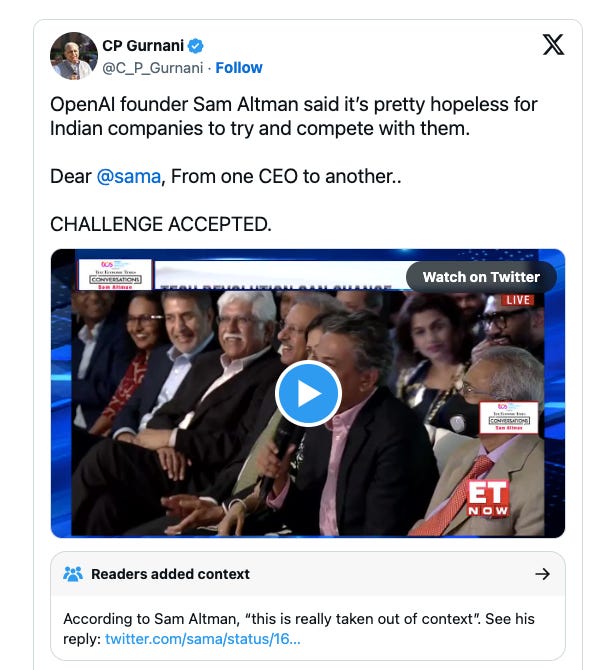Silicon Valley is Shaping Foreign Policy — But Should It?

It could be a matter of time before the modern nation state no longer exists.
According to The Sovereign Individual:
“As the bandwidth revolution unfolds, it will draw people more and more into the borderless virtual world of online communities and cybercommerce…as ever more economic activity is drawn into cyberspace, the value of the state’s monopoly power within borders will shrink, giving states a growing incentive to franchise and fragment their sovereignty.” (179)
With economies and communities becoming more decentralized, the value proposition of the state is beginning to wane. Groups and individuals are finding themselves in positions where they perform some of the functions of a state without the bureaucratic burden of being one.
Tech Titans in Silicon Valley are beginning to play this role.
Over the years high powered executives like Tim Cook, Mark Zuckerberg, and Elon Musk have met with foreign heads of state. What started as informal meetings on the sidelines of summits and conferences now mirror formal meetings usually reserved for high-ranking diplomatic officials.
This is a subtle but significant shift in how foreign policy is conducted.
The Tech Titans are wise but not omnipotent. Some may have studied history on their own but that does not mean they are educated in the art of statecraft. Mark Zuckerberg will never be Henry Kissinger nor should he aspire to be.
Could we be entering a future where the interests of the state are subordinated to the interests of powerful individuals? Could the CEO of Boeing directly negotiate a deal with an ally’s minister of defense? Could OpenAI write treaty-level rules of AI engagement that the rest of the world will be expected to follow?
We are at a precipice in international relations. If the argument made in The Sovereign Individual is correct — that borderless digital commerce will undermine the need for a state-based world order — how will countries interact with one another moving forward?
This essay is a thought exercise on the role wealthy individuals play in matters of foreign policy. It will argue that a conflict of interest exists between individual interests, the interests of companies, and the interests of the state. While bureaucracy creates problems, it is a valuable intermediary that bridges competing interests together. How will the future look when it is shaped by sovereign individuals rather than sovereign states?
Sam Altman is on an AI world tour where he is meeting with heads of state.
A year ago you probably didn’t know who Sam Altman was. Today he’s touring the globe.
Altman recently stopped in India to discuss advances in artificial intelligence. A clip of a keynote he gave went viral. He essentially told a CEO that Indian innovators won’t be able to create a foundational model of their own. At least not one that can compete with OpenAI.
While that clip certainly caught the internet’s attention, it wasn’t the only reason for his visit to the subcontinent. Altman also met with India’s Prime Minister Narendra Modi. The purpose: to discuss India’s tech industry and the importance of regulating AI.
What’s remarkable about Altman’s trip to India is what it represents. The release of ChatGPT in November 2022 will likely be looked back on as a pivotal moment in human civilization. Global governments, especially the United States, aren’t ready to regulate it. So Sam Altman is trying to fill the void.
In the interim, this may seem like a gesture of goodwill. In reality, it could do more harm than good.
At the moment Altman is having conversations with world leaders about regulation. But because the knowledge gap is so vast OpenAI may inevitably be called on to provide guidance to regulate it. That would be like calling on oil companies to lend their expertise to help curb greenhouse gas emissions.
AI is changing many things, including diplomacy. Global leaders representing the interests of their respective countries aren’t up to speed on the latest technological advancements.
Likewise, Tech Titans aren’t necessarily in a position to represent the broad interests of the United States either. This fundamentally changes the balance of power, giving individual corporate executives far more sway in global affairs than they arguably ought to have.
Meanwhile, Bill Gates recently met with Xi Jinping.
US-China relations are not in a good place. Short of some sort of detente, they won’t be improving anytime soon either.
But in the meantime, Bill Gates recently paid a visit to Beijing and met with Xi Jinping. The topic of conversation was unremarkable. The pair discussed the Gates Foundation’s global impact in reducing poverty and opportunities to continue working together in the future.
What was remarkable about this trip was that it was President Xi’s first meeting with an American business leader in quite some time. In fact, Xi noted that Gates was “the first American friend I’ve met in Beijing this year.”
This represents an important pivot in US-China relations. Beijing views the Tech Titans of Silicon Valley as friends but politicians in Washington as foes. The interests of Silicon Valley, however, don’t necessarily align with those of Washington.
Profit-motivated capitalists are willing to make concessions to China and placate its leaders. Washington, on the other hand, doesn’t have that luxury. China is working towards building a blue-water navy that the United States will need to address if it wants to maintain its supremacy of the seas. China’s desire to “reunify” with Taiwan puts 90% of the world’s advanced semiconductor supply in jeopardy. And advances in AI will allow China to continue building out its robust surveillance state.
A surveillance state that could replace the current world order should the United States lose its present status.
Maybe Bill Gates is thinking about what a rising China means for the United States while he’s meeting with Xi Jinping. Probably not.
Gates, like other Tech Titans, is more attuned to the returns on his capital investments and the role he plays in shaping the future of humanity. Those interests supersede the interests of the United States and the people it represents. When those interests are in conflict, it’s unlikely someone like Bill Gates will make a decision solely for the benefit of you and I.
Final takeaway.
In today’s system of sovereign countries, diplomacy, commerce, and war happen through formal channels. States represent the collective interests of their citizens rather than the interests of a select few.
Or at least, that’s how the system is supposed to work. We’re beginning to see evidence that the state is ceding its role as a global interlocutor to a handful of wealthy businessmen and cultural icons.
Some individuals, like Dennis Rodman, are a novelty. He provides a rare access point to North Korea that American diplomats simply don’t have.
America’s Tech Titans, on the other hand, are reshaping the norms of international relations altogether.
When individuals like Sam Altman, Tim Cook, Mark Zuckerberg, and Bill Gates meet with foreign heads of state they do so representing conflicting interests. Their shareholders have more sway in their decisions than the American people. When short-term profit gains are on the line they risk undermining America’s interests in the long-term.
As the role of the state wanes in a digital world a technocratic governing class will rise to fill the void. The future will be molded according to their view of the world rather than the collective interests of the American people.
What kind of future do you want to live in? Who do you want to shape it? That is something to seriously begin thinking about before we continue ceding any more power to them.






